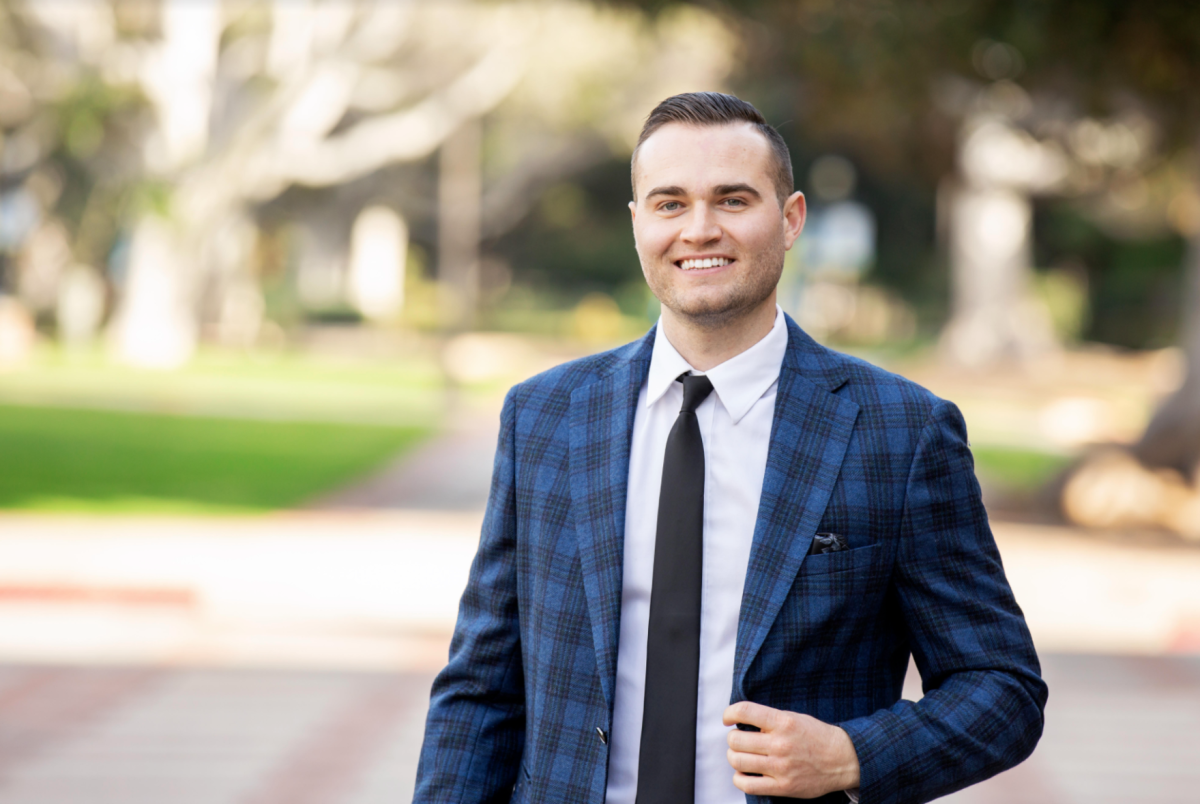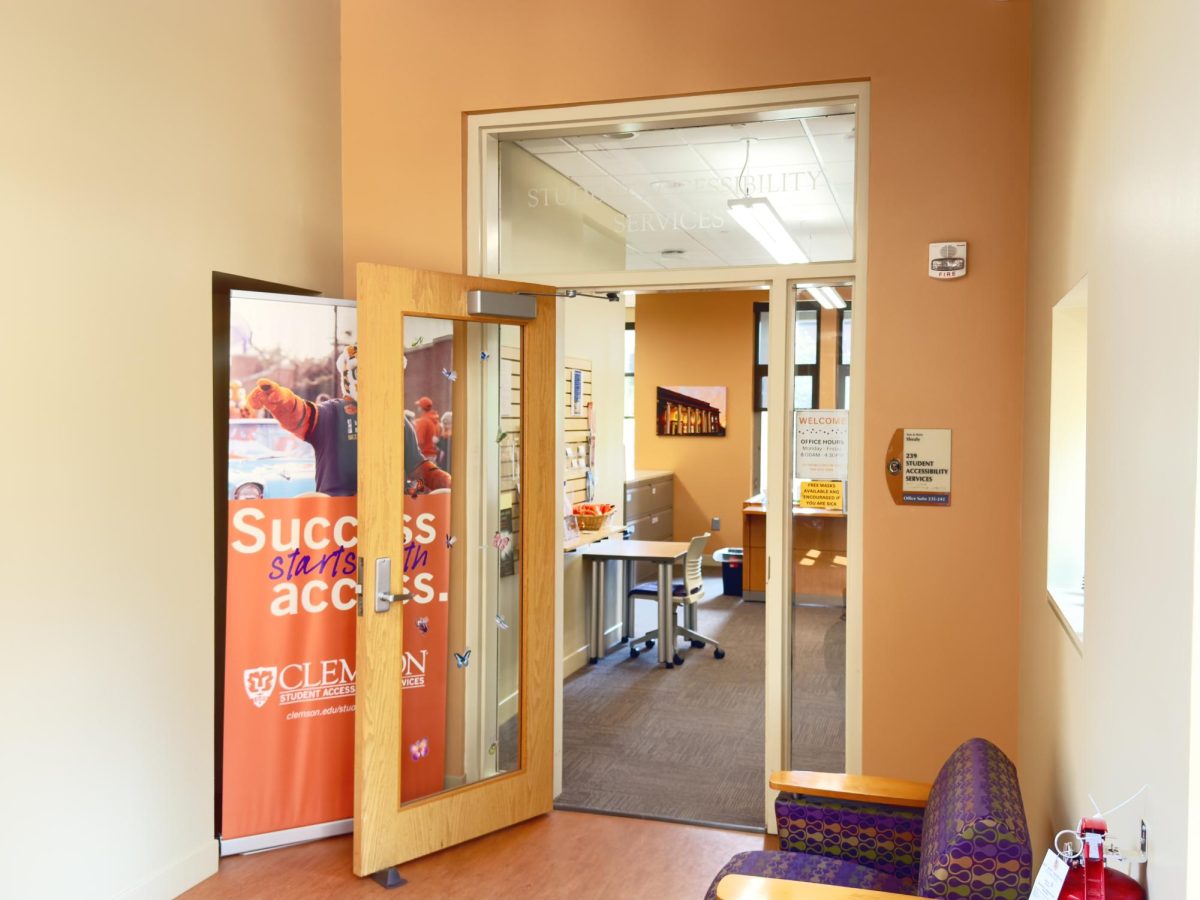The Tiger News recently sat down with Zach Westerbeck, professional mental health speaker and coach, to talk about the impact that COVID-19, social media and societal pressures have had on the mental health of students.
Westerbeck is a graduate of Purdue University and has struggled with mental health personally. “He is dedicated to speaking and advocating for mental health awareness and is the founder of Westerbeck Speaking and Coaching.” Westerbeck is Mental Health First Aid USA certified, and released his first book, “You’re Not Alone,” on Oct. 5, 2020.
This interview has been edited for brevity and clarity.
Tell us a little bit about your story to becoming a mental health speaker.
My story began in 2016. I really considered myself a fortunate kid growing up. I had two loving parents, a sibling and plenty of friends. When I moved from college down to Charlotte to start my career, all of a sudden, out of nowhere, I started waking up every day with what felt like a drumline in my chest. I got sweaty palms, a dry mouth, racing thoughts. And as a 22-year-old, I didn’t know what was going on. So, I did what a lot of people do, and I shut down.
What was happening?
I was experiencing severe anxiety. And, after a month, not only had my anxiety gotten worse, a second emotion had come in: depression. It’s the heaviest emotion I’ve ever felt. And for me, there was nothing I could point to that would explain why I was depressed. So, here I am, secretly trying to figure this out. And meanwhile I’m doing two things really well: hiding from the real world how I feel, which a lot of people do, and living in denial that my brain health was deteriorating- fast.
How did you recover?
It took me many years through talk therapy to learn how to re-love myself and re-love my brain. I realized that, if I could come from what I thought was a solid background and still be brought to the brink, then I couldn’t imagine what it would be like for someone who didn’t have the right support system.
What kind of stigma still exists surrounding mental health?
There is a societal stigma and a self-perceived stigma. From a societal level, the CDC estimates that around 50% of Americans around the age of 18 are going to experience some form of anxiety or depression in their lifetime. The challenge is that people are going to experience these emotions at different times. What I’ve experienced will be different from what you’ve experienced. On an individual basis, when you are depressed, when you are anxious, you have feelings of guilt, self-doubt.
I could imagine some people describing the guilt and self-doubt as a sort of positive feedback loop, self-reinforcing and making it hard to break the cycle.
That’s very true. The loop of negativity can feed itself too because if you don’t believe you can get well, then you never seek help, and because you never seek help, you never get well. And because you never get well, you never seek help.
With everything that has happened so far with COVID-19, how has the isolation and change in social interaction impacted on people’s mental health?
The core of it is uncertainty. Our brains are hardwired for survival. And the best way for survival is for us to know that we are secure and safe. Anytime you introduce uncertainty into the equation, you are going to see an uptick in stress and anxiety because as human beings we want to be able to control our environments and feel like we’re in the driver seat.
Social media use has certainly grown and, in some cases, filled in the gaps of social interaction throughout the pandemic. But there are concerns about impacts on anxiety and depression.
Definitely. What research is starting to show is that this level of access is something human beings were never meant to have. We’re not supposed to get validation over 100 times a day from someone double tapping our photo or commenting on it. Social media is giving us false signals, telling us we’re not enough.
As you’ve mentioned, society plays a large role not only in the stigma but also in the education about mental health. What impact does the culture of the United States have?
Mental health impacts everything. It impacts healthcare, it impacts jobs in the economy, it impacts education, it impacts so many different facets of society. Mental health is ingrained in every part of society today. That’s because society is made up of people, and everybody has a brain.
What advice would you have for students as we continue to navigate the pandemic?
Establish a routine early on. That routine should have some core activities that you do every day. The first of that is sleep. One of the biggest things that I see is that the average college student is getting 5-6 hours of sleep a night. It’s going to affect your cognition, your ability to learn, your ability to deal with stress. The second thing is implementing some form of physical activity. Because we’re all inside, I have seen these four walls more than I’d like to admit, and I find myself getting down if I’ve spent too much time inside. The last thing is meditation. Science has proven that 10 minutes of meditation has led to a decrease in anxiety, it decreases feelings of depression. It promotes feelings of happiness and focus.
When it comes to signs and symptoms, what should people look out for in themselves and others?
On the high-level there are a few easy symptoms to look out for. If you notice that one of your friends is withdrawn and lacking emotional responsiveness. Almost a zombie-like state. Not engaged in their lives, not laughing at jokes the same way, spending a lot of time in their room away from people. Another symptom to look for is excessive sleeping. If it’s one isolated time, okay that’s fine. But if it’s a reoccurring thing, it might be a sign.
In closing, what advice might you have for someone that is on the fence about seeking help for what they’re going through?
The response I would have to that is: what do you have to lose, other than an hour of your time to go and speak to somebody? If you have these thoughts in your head and you’re in denial about it, most of the time that’s the sign that you really do need to seek out help. And that’s fine because on the other side of seeking help is the resolution that deep down inside we are all looking forward to.
For more information about Zach Westerbeck, visit his website or Instagram profile.
Clemson University Mental Health Resources
In an emergency, call 911.
-
National Suicide Prevention Lifeline: (800) 273-8255
-
Counseling and Psychological Services (CAPS) Business Hours Line: (864) 656-2451
-
CAPS After-Hours Emergency Line: (864) 656-2222
-
Mental Health America Greenville Crisis Line: (864) 271-8888
-
Crisis Text Line: Text “Tigers” to 741-741









